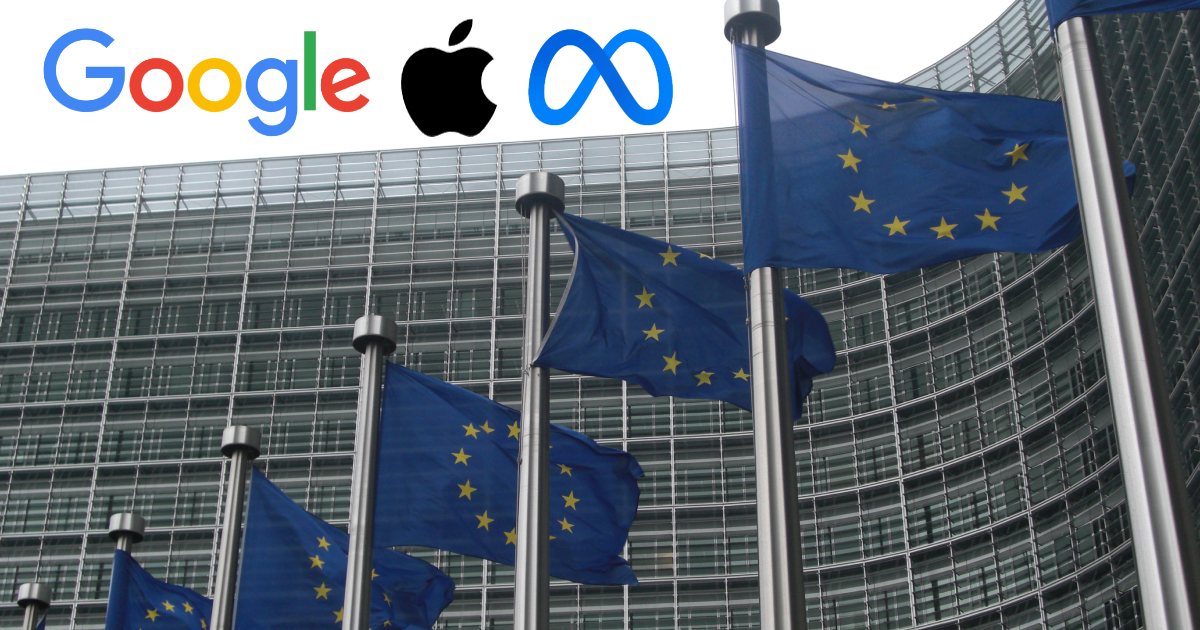The European Commission has launched an antitrust investigation into Apple, Google, and Meta. Some of the world’s largest tech giants are suspected of non-compliance with the Digital Markets Act (DMA).

What happened?
On March 25, the European Commission opened five separate proceedings against Apple, Alphabet (Google), and Meta. Here are the regulator’s main concerns and suspicions:
- Alphabet and Apple may be in breach of Article 5(4) of the DMA, which requires the so-called “gatekeepers” to allow third-party developers to promote offers outside of app stores free of charge, by imposing various restrictions and limitations;
- Alphabet is suspected of self-preferencing Google search results in favor of its own services and, as a result, treating rival third-party services fair in an unfair and discriminatory manner;
- Apple’s choice screen for Safari may be preventing users from choosing another browser, as well as changing default settings and easily uninstalling any apps on iOS;
- Meta’s “pay or consent” model, recently introduced for users in the EU, may be in breach of Article 5(2) of the DMA by not providing a real alternative in case users don’t consent to the collection of their personal data across different core platform services.
We suspect that the suggested solutions put forward by the three companies do not fully comply with the DMA. We will now investigate the companies’ compliance with the DMA, to ensure open and contestable digital markets in Europe.
European Commission’s executive VP in charge of competition policy
In addition, the European Commission is looking into whether Amazon is self-preferencing its own brands on the Amazon Store and whether Apple’s new fee structure for alternative app stores violates the DMA rules.
What consequences could Apple, Google, and Meta face?
The Commission expects to conclude the investigations within the next 12 months. Each company will be given the exact steps they must take to address concerns.
According to EU commissioner Thierry Breton, Apple, Google, and Meta “could have heavy fines” if the regulator finds a lack of full compliance with the new antitrust law.
Each company may be fined up to 10% of their annual global revenue, or even 20% in the case of repeated infringement.
“We have been in discussions with gatekeepers for months to help them adapt, and we can already see changes happening on the market,” Breton said in a statement. “But we are not convinced that the solutions by Alphabet, Apple and Meta respect their obligations for a fairer and more open digital space for European citizens and businesses.”
An Apple spokesperson told Bloomberg that the company is confident it complies with the DMA, while Meta also noted that its offerings are designed to comply with “overlapping regulatory obligations.” Google said it has already made significant changes to its services in Europe, ready to “continue to defend our approach in the coming months.”

